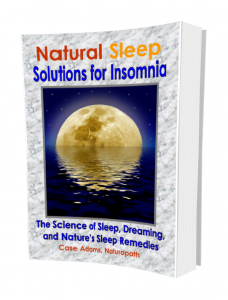Parkinson’s Disease and Dementia Linked to Sleep
Scientific study is increasingly proving that Parkinson’s disease and dementia are linked to a lack of good quality sleep.
In this article
Sleep research and Parkinson’s
Researchers from Italy’s National Institute of Neurology Sleep Unit have confirmed that sleep disorders are associated with Parkinson’s disease and dementia related to Parkinson’s disease. This confirms a series of French studies showing that people with REM-stage sleep disorders were more likely to develop Parkinson’s disease and various cognitive issues.
The Italian researchers studied 139 patients who either had Parkinson’s disease, Parkinson’s disease associated with dementia, or Lewy Body related dementia. Of the group, 117 patients were sleep-tested with video to determine their level of REM and NREM sleep disorders.
The testing found that 70 of the patients had irregular sleep-related behavioral disorders. Furthermore, those patients that had disturbed REM-stage sleep or NREM-stage sleep were more likely to have dementia-related symptoms. These patients tended to awake more often during REM-stage sleep and NREM-stage sleep, and have abnormal REM-stage sleep.
A series of French studies on Parkinson’s and REM-stage sleep conducted several years ago also found that Parkinson’s is related to REM-sleep behavior disorders. These include REM-stage sleep interruptions, aggressive and violent movements during REM-stage sleep, and sleepiness due to a lack of REM-stage sleep. In one of these studies, 50 Parkinson’s patients were video-monitored and 100 couples were interviewed to study the prevalence of sleep issues amongst them. They found that up to 60% of the Parkinson’s patients had abnormal REM-sleep episodes.
Researchers have also found that REM-stage deficiency often precedes Parkinson’s and dementia by a number of years. Also, sleep apnea is more prevalent among those with Parkinson’s, and so is restless leg syndrome.
Sleep is critical to our nervous system
Sleep allows our central nervous system – which includes the brain cells – to detoxify and unwind. It allows the hippocampus and the rest of the limbic system to process memory storage, easing the burden of brain cells in the cortices. These functions are important because they reduce the stress on brain cells. Research has shown that the processes that take place during REM-stage sleep allow our brain cells to ‘reset.’ Be careful cause screen use late at night can disrupt REM sleep.
Oxidative stress, a common symptom of all types of dementia and Parkinson’s, is reduced during REM-stage sleep.
Learn more about REM-sleep about hundreds of natural proven sleep remedies:
REFERENCES:
Ratti PL, Terzaghi M, Minafra B, Repetto A, Pasotti C, Zangaglia R, Pacchetti C, Manni R. REM and NREM sleep in Parkinson’s disease, Parkinson’s disease dementia, and dementia with Lewy bodies. Sleep Med. 2012 Jun 13.
Cochen De Cock V, Arnulf I. REM sleep in Parkinson’s disease. Rev Neurol (Paris). 2008 Aug-Sep;164(8-9):683-91.
Cochen De Cock V, Abouda M, Leu S, Oudiette D, Roze E, Vidailhet M, Similowski T, Arnulf I. Is obstructive sleep apnea a problem in Parkinson’s disease? Sleep Med. 2010 Mar;11(3):247-52.
Arnulf I, Morgan J. Not all that goes “bump in the night” is RLS: leg motor restlessness in PD. Neurology. 2011 Nov 29;77(22):1936-7.
















